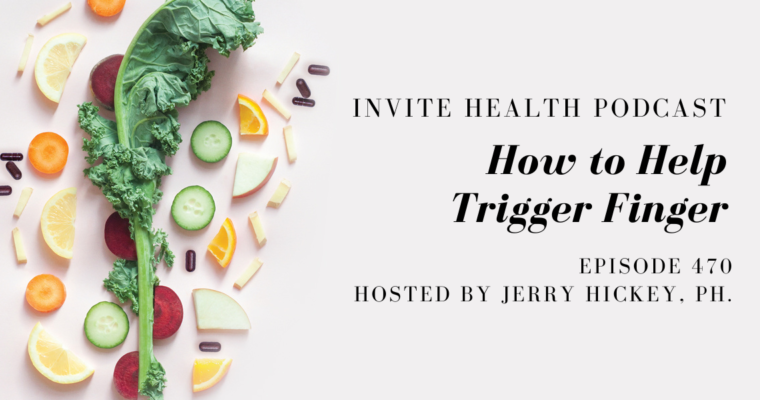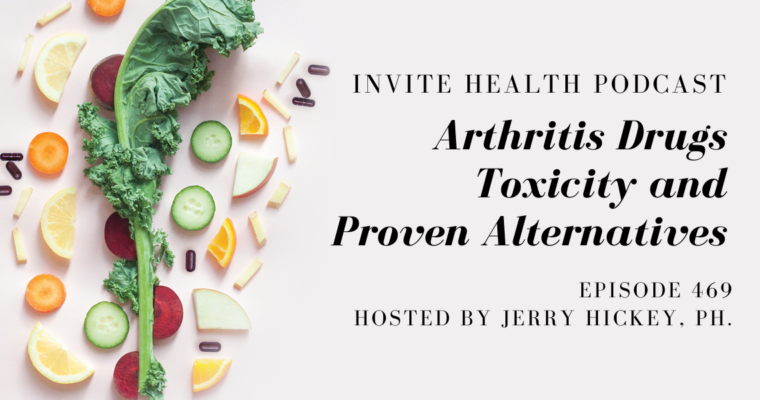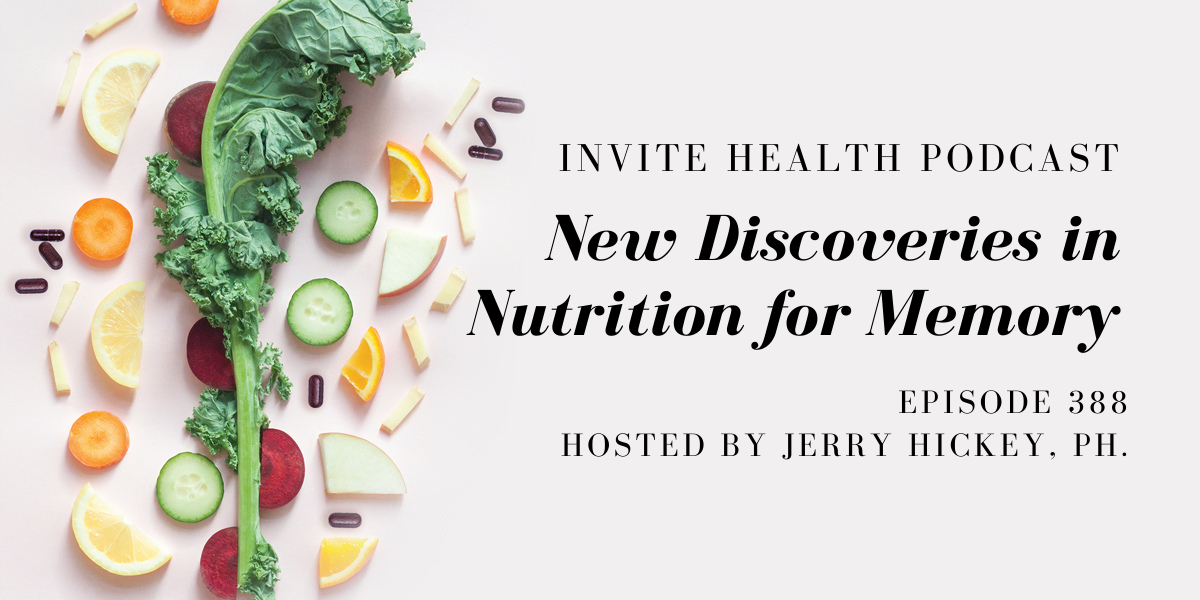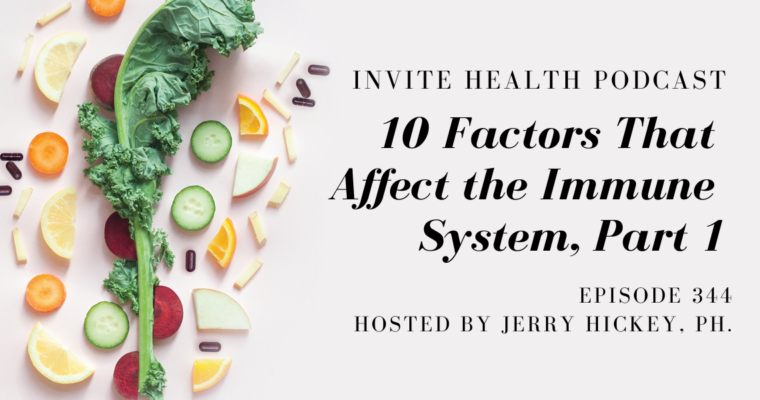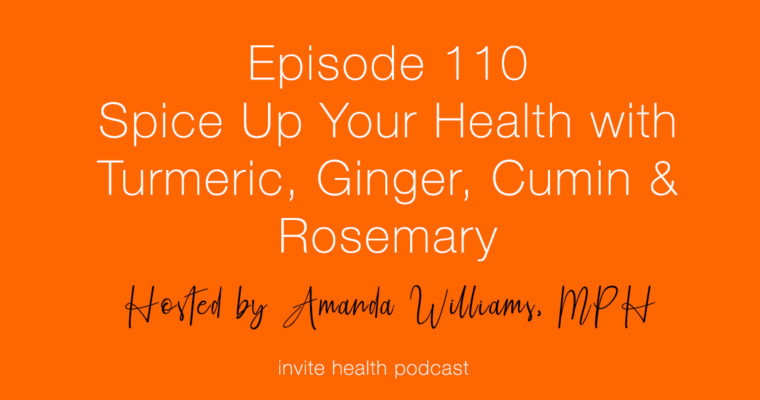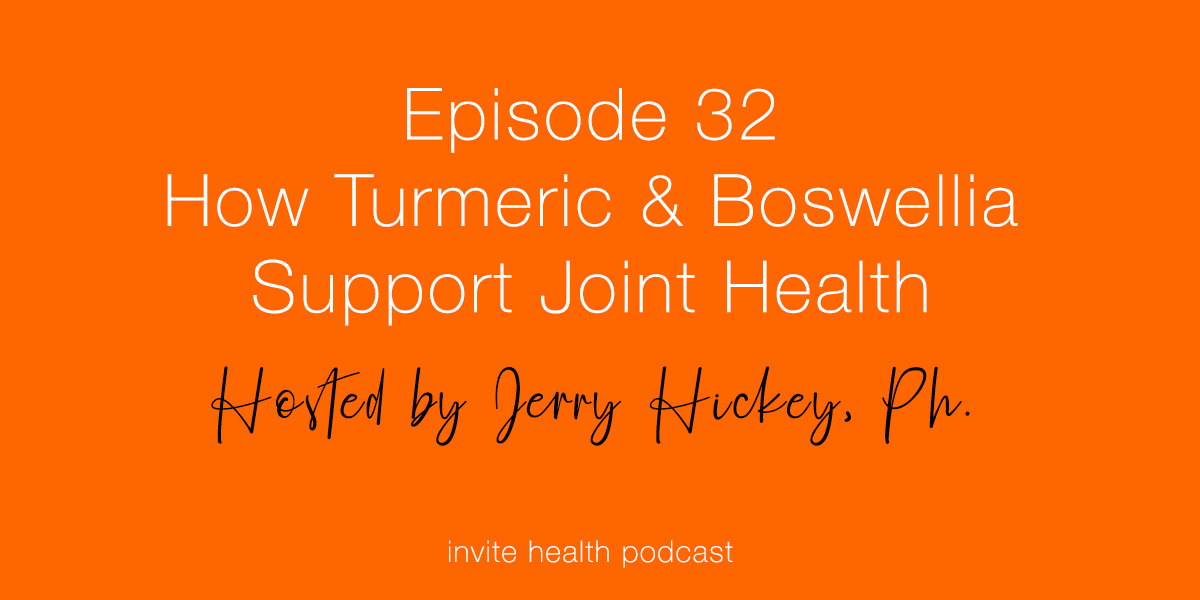Invite Health Podcast, Episode hosted by Jerry Hickey. Ph
Subscribe Today!
I love to take a walk. Personally, my greatest pleasure in life is taking a walk especially with my two dogs, Charley and Hudson. Because of my knees, I take an absorbable version of Turmeric and Boswellia so I can keep on walking comfortably. Today I will discuss how the herb Turmeric (if specially enhanced for better absorption) and the herb Boswellia (also known as frankincense) can enhance joint health and comfort.
What is Turmeric?
You have probably heard of Curcumin. Many companies use this as the headliner in their joint health formulas. Sadly, Curcumin is only one ingredient out of 235 different constituents so far discovered in Turmeric that only makes up 2-5% of the plant ingredient. In fact, if companies do not make Curcumin more water soluble in their formulas, it will not be absorbed very well.
Besides, research out of Baylor University Medical Center in Dallas, Texas shows you need the complete plant safely modified to be well absorbed to relieve joint soreness and stiffness. This is why Baylor has chosen Bio-Curcumin for their human clinical research.
Turmeric works mostly by inhibiting the COX-2 inflammatory pathway that is dominant in joint pain. It is a medicinal and culinary herb from Ayurvedic Medicine and is part of the Ginger family. Turmeric is poorly absorbed, therefore Bio-Curcumin is the best form of Turmeric available as it includes the entire plant. In fact, 95% of it is the active ingredients for joint health and this matters.
More about Bio-Curcumin
Bio-Curcumin is grown organically using solar power in soil that has never been exposed to pesticides. It is non-GMO and consists of the all the ingredients found in Turmeric and is safely extracted without the use of toxic solvents. Side note – when other companies use cheap solvents to extract their Curcumin, these can never be totally removed form the finished product and this is why InVite® never uses an ingredient obtained by the use of toxic solvents.
The powerful polyphenolic Curcuminoids and the terpene essential oils are present and they strongly combine to reduce joint discomfort; you need the combination of these ingredients and not just curcumin. There are more than 50 scientific studies, many of which are human clinical trials, proving its benefits. This helps to establish the correct potency for use and proves its safety with over 15 years of safety data.
Boswellia Serrata (Frankincense) and 5-Loxin
The lipoxygenase pathway is a second dominant pathway involved with joint pain and, along with the CoX-2 pathway that Turmeric inhibits, makes your knees feel awful. 5-Loxin is an ingredient isolated from the herb Frankincense, also known as Boswellia serrata; it inhibits the 5-Lipoxygenase pathway, therefore the name 5-Loxin.
We obtain 5-Loxin from the resin extract of the plant and it is very safe and works very well for joint discomfort and works very quickly to offer relief. 5-Loxin is superior to Boswellia serrata extracts. We know this is true based on research from Georgetown University, Ohio State University Medical Center, Kansas University Medical Center, and the University of California Davis.
Turmeric and Boswellia have also been shown to support Brain Health! Click here >>
Their research shows that 5-Loxin gets into the joint and inhibits the cartilage-degrading enzymes known as matrix metalloproteinase enzymes (especially the enzyme MMP-3) that breaks down cartilage, collagen, and the connective tissues of the joint. Blocking MMP-3 and it’s related enzymes helps with discomfort and inflammation but also may help shield the joint tissues from further erosion helping preserve the current state of your joint cartilage while reducing stiffness and soreness.
Clinical Studies on Bio-Curcumin for Joint Support
A formula containing Bio-Curcumin and the European version of 5-Loxin was compared to the prescription drug Celecoxib. Celecoxib is the number one prescription treatment for joint pain worldwide. The herbal combination was slightly better for joint pain and the ability to walk than the drug. For stiffness, it was a tie.
A study from Baylor University Medical Center in Dallas compared the effects of BioCurcumin to that of Diclofenac, a very powerful prescription pain killer, in patients with rheumatoid arthritis, the reduction in pain and swelling was the same for herbal ingredient as the powerful drug. RA is a terrible arthritis where the immune system attacks many joints leading to crippling pain and joint disfigurement. BioCurcumin worked as well as diclofenac but was light years safer.
In other studies both BioCurcumin or 5-Loxin, used alone or combining the two herbal ingredients together, and compared to placebo (a fake pill) or compared to well-known arthritis drugs, always worked very well for arthritis in the hips, knees, or hands. They are also very successful for reducing muscle pain and stiffness.
Another major supporter of Joint Health? Collagen! Here’s what you need to know >>
In a review of a compilation of research by the Division of Rheumatology at Tufts University, based on the results of eleven randomized controlled human clinical trials, either Turmeric preparations or Boswellia preparations worked significantly to give clinically important reductions in pain and improvements in joint function. The herbal ingredients were as safe as placebo, and well absorbed Turmeric products worked as well as NSAID drugs. Examples of which would be Celecoxib, ibuprofen, and diclofenac.
Indeed, a number of comparisons show there is no real difference between the benefits of the herbal ingredient BioCurcumin with prescription medication for joint pain relief except when it comes to safety data; both BioCurcumin and 5-loxin have proven to be very safe to use causing no major side effects with no safety difference between them and placebo. By the way, don’t scoff at the use of placebo – it works for chronic pain basically by training the brain to ignore it. That BioCurcumin or 5-Loxin strongly outperform placebo and are as safe as placebo is a very-very good thing and you can remain on these ingredients for as long as necessary without a safety issue according to a lot of human data.
Research on the Irish national rugby team, the New Zealand national Rugby Team, and from Lindenwood University shows that well absorbed Turmeric is good for muscle soreness and stiffness, backaches, and muscle injuries in elite athletes and in active adults and it is safe.
Just to review, BioCurcumin 5-Loxin used alone or better yet together are very useful for the joints. There is no true difference in effectiveness between BioCurcumin and prescription or over the counter medicine for arthritis yet the two ingredients are as safe as placebo.
Thank you for tuning in to the InVite Health Podcast. You can find all of our episodes for free wherever you listen to podcasts or by visiting www.invitehealth.com/podcast. Make sure you subscribe and leave us a review! Follow us on Facebook, Twitter and Instagram at InVite Health today. We’ll see you next time on another episode of the Invite Health Podcast.

